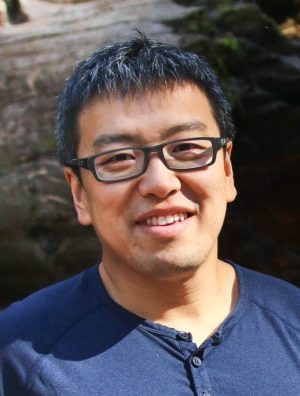Date
Location
L3Harris Engineering Center, HEC-101
Description
Future microelectronics will fuse diverse materials and structures for enhanced integration density, speed, and functionality. Two-dimensional materials (2DMs) stand out as attractive candidates in this trend with their outstanding electronic performance, ultra-thinness, and rich physical interactions. Despite that, the heterogeneous integration between 2DMs and other platforms remains challenging due to weak interfacial interactions. In this talk, Dr. Lei will discuss the fundamental challenges and present his recent progress in bridging this gap, including the establishment of reliable electric contacts for future 3D integration and the construction of organic-inorganic frameworks for 2D-based flexible devices. Additionally, Dr. Lei will introduce technical innovations made by his group and potential approaches to establish integrated quantum devices based 2DMs. These studies will foster the development of future very large-scale integration (VLSI) with advanced electronic, quantum, and biological functions.
Biography: Dr. Sidong Lei received his Ph.D. in Applied Physics from Rice University in 2016, and then worked at the University of California, Los Angeles, as a postdoctoral researcher. In 2018, he joined Georgia State University as an Assistant Professor of Physics. In 2023, Dr. Lei received the NSF Career Award. His research interests include the synthesis of low-dimensional semiconductors and quantum materials, the surface/interfacial physics of reduced-dimensional systems, and the principles and solutions for 2DM-based VLSI and biomedical devices.
Presenter

Sidong Lei, Ph.D.
Department of Engineering & Astronomy
Georgia State University
Atlanta, Georgia
Contact
Debashis Chanda, Ph.D. NanoScience Technology Center Debashis.Chanda@ucf.edu